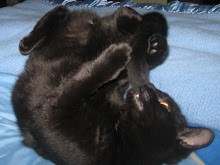
Happy Birthday Dr. Seuss! Today is his birthday; he was born on this day in 1904, as Theodor Seuss Geisel. He died in 1991, after writing many books for children. Today, however; appears to be a perfect day to share something he wrote for adults. In 1974, Dr. Seuss submitted a paraphrased version of Marvin Mooney Will You Please Go? to the Washington Post, in reference to then president Richard Nixon. Several weeks later, Richard Nixon resigned. Can anyone think of another corrupt White House occupant who should heed this message?
"Richard M. Nixon will you please go now!
The time has come. The time has come. The time is now.
Just go. Go. Go!
I don't care how. You can go by foot. You can go by cow.
Richard M. Nixon will you please go now!
You can go on skates. You can go on skis. You can go in a hat.
But.. Please go. Please!
I don't care. You can go by bike. You can go on a Zike-Bike
If you like. If you like.
You can go in an old blue shoe.
Just go, go, GO! Please do, do, do, DO!
Richard M. Nixon, I don't care how.
Richard M. Nixon,will you please GO NOW!
You can go on stilts. You can go by fish. You can go in a Crunk-Car
If you wish. If you wish You may go by lion's tale.
Or stamp yourself and go by mail.
Richard M. Nixon, don't you know
The time has come to go, go, GO!
Get on your way! Please Richard M.!
You might like going in a Zumble-Zay.
You can go by balloon . . . Or broomstick.
Or you can go by camel
In a bureau drawer. You can go by bumble-boat. . . or jet.
I don't care how you go. Just get!
Richard M. Nixon! I don't care how.
Richard M. Nixon will you please GO NOW!
I said GO
And GO I meant . . .
The time had come
So . . . Richard WENT."

